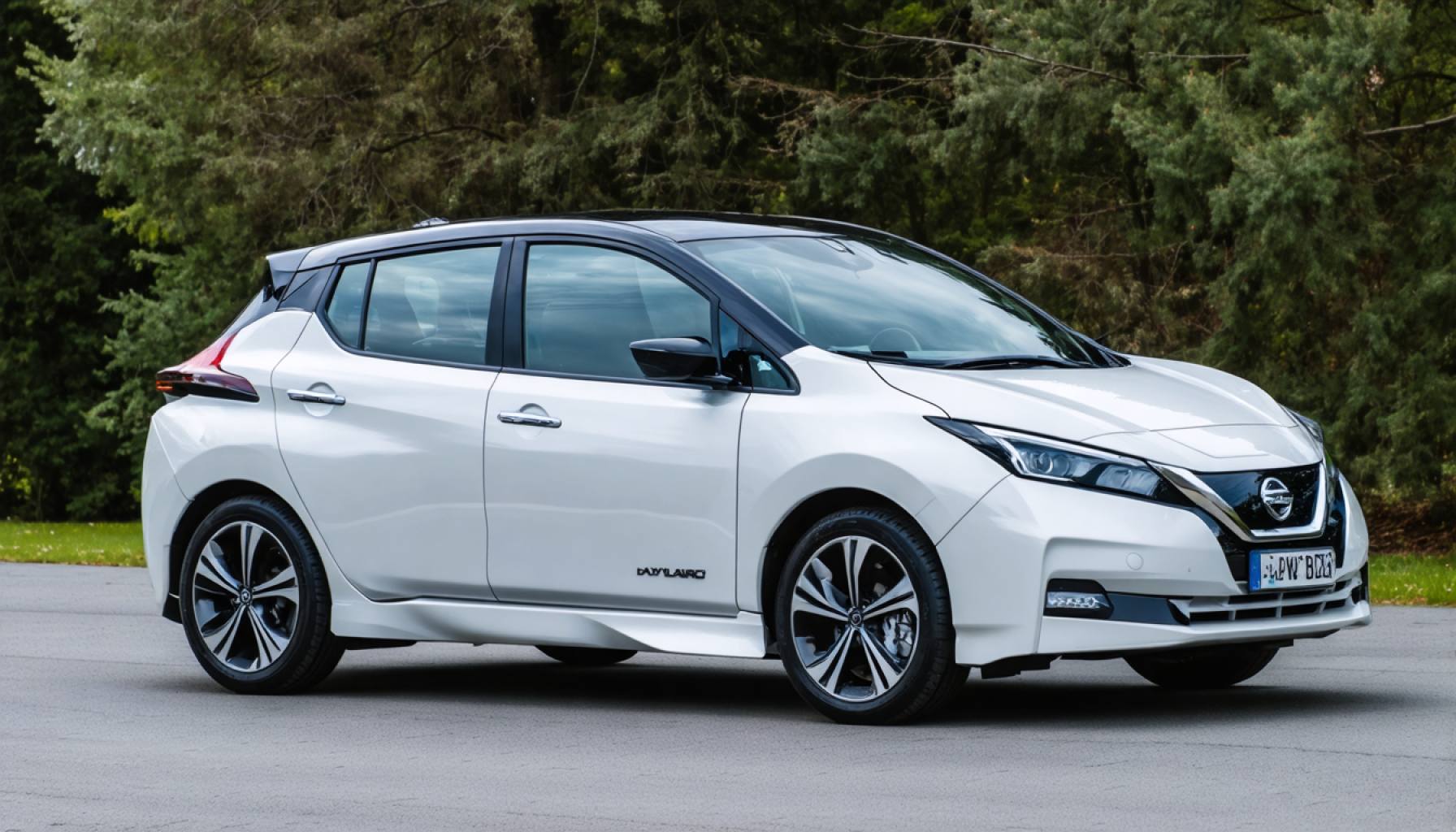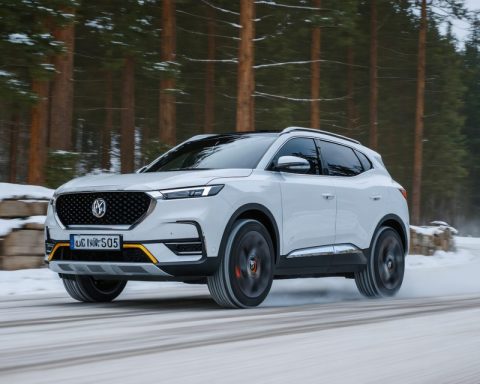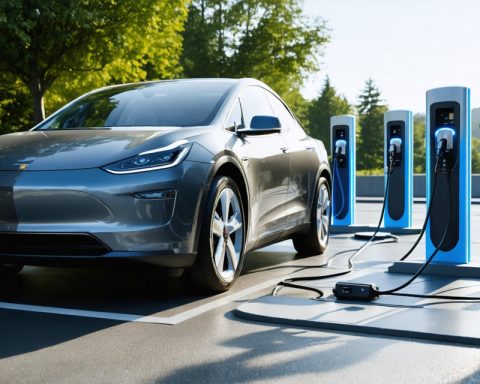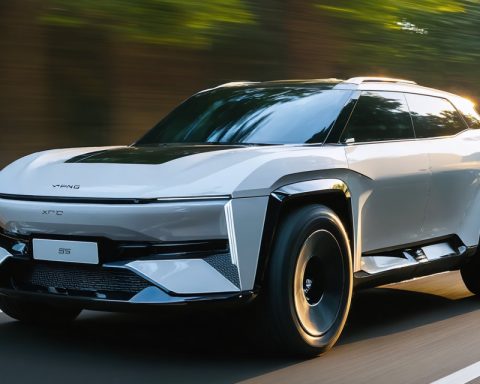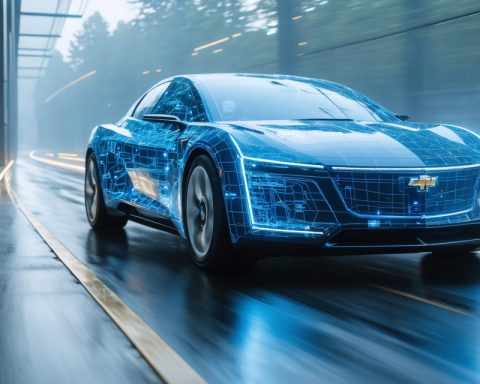- The Nissan Leaf is transforming from an electric hatchback into a compact SUV, debuting in Australia between April 2026 and March 2027.
- This redesign is influenced by the Nissan Ariya, featuring a modern, sophisticated look with a dual-tone exterior and advanced features like LED light bars and a panoramic sunroof.
- The new Leaf will use the CMF-EV platform, known for enhancing energy efficiency and driving dynamics, potentially offering an impressive range.
- Enhanced ‘X-in-one’ technology promises improved performance by integrating essential components into a singular unit, reducing noise and vibration.
- The vehicle will transition to the CCS2 charging system for faster and more convenient charging compatibility, especially in right-hand-drive markets.
- Produced in Sunderland, UK, the Leaf aims to compete with Hyundai’s Kona Electric and Kia’s EV3, maintaining its status as an electric vehicle leader.
The Nissan Leaf, a pioneer in the electric vehicle landscape, is about to undergo a metamorphosis that promises to capture the attention of car enthusiasts and eco-conscious drivers alike. Once known as the quintessential electric hatchback, the Leaf will soon reemerge as a striking compact SUV, poised to traverse Australian roads boldly between April 2026 and March 2027.
This notable transformation signifies more than just a change in form; it’s an evolutionary leap responding to the desires of modern families seeking spaciousness without sacrificing ecological virtue. As global tastes increasingly gravitate towards larger vehicles, Nissan’s strategic shift ensures that the Leaf evolves in parallel with consumer needs and environmental consciousness.
The imminent model draws inspiration from Nissan’s sleek Ariya, presenting a visage that merges familiarity with futurism. At first glimpse, the new design enchants with its rounded-off bonnet and closed grille, accentuating a harmonious balance of friendliness and sophistication. Black cladding surrounds its elevated body, framed by a dual-tone palette that shimmers with an aqua hue under a sleek black roof—amplifying its refined allure. The LED light bar and pronounced rear lights infuse a sense of modernity, while 19-inch alloy wheels and a panoramic sunroof elevate the SUV’s luxe quotient.
Beneath its captivating exterior, the Leaf rides on the CMF-EV platform, a product of Nissan’s collaboration with Renault, widely acclaimed for underpinning other market successes like the Ariya and Renault Megane E-Tech. While Nissan maintains a shroud of secrecy around the precise powertrain specifics, whispers suggest a commitment to advancing energy efficiency and enhanced driving dynamics, possibly achieving a formidable WLTP range.
By integrating cutting-edge ‘X-in-one’ technology, which combines the motor, inverter, and reducer into a singular unit, the Leaf promises an enhanced driving experience devoid of cumbersome bulk. It’s an audacious stride towards minimizing noise and vibration, all the while perfecting its performance and economy.
Charging capabilities, a perennial concern for EV owners, are receiving a significant overhaul. Transitioning from the outdated CHAdeMO system to the more modern CCS2 standard in Australia promises faster, more universally compatible charging. The revamped charging port now sensibly located on the vehicle’s side further demonstrates Nissan’s attentiveness to driver convenience, especially in right-hand-drive markets.
As the Leaf prepares to challenge the likes of Hyundai’s Kona Electric and Kia’s EV3, it reinforces its legacy as an electric frontrunner. Leaving behind its hatchback beginnings, the Leaf commands a new narrative in the EV sector—one of evolution, resilience, and forward-thinking design.
Manufactured in Sunderland, UK, the Leaf benefits from the craftsmanship honed over years of innovation, promising quality and consistency for its global audience. As the upcoming SUV takes aim at redefining its segment amidst electric titans, it underscores Nissan’s ambitious vision: a future where the Leaf continues to redefine automotive excellence.
In a world where technology rapidly advances and sustainability becomes non-negotiable, the new Nissan Leaf stands as a testament to progress—a practical yet incandescent leap forward in the electric vehicle saga.
The Next Generation Nissan Leaf: What You Need to Know
The Nissan Leaf’s journey from a pioneering electric hatchback to its upcoming role as a compact SUV marks a significant turning point in the electric vehicle (EV) market. This transformation not only aligns with evolving consumer preferences but also reinforces Nissan’s commitment to sustainability and innovation. Let’s explore additional avenues not covered in the initial discussion and provide a comprehensive look at the new Leaf.
A Deeper Dive into Features and Specs
1. Powertrain Innovations: While specific details remain under wraps, the new Leaf is expected to feature an updated electric drivetrain with improved battery technology. This will likely enhance its range significantly, potentially achieving over 400 kilometers on a single charge with the WLTP standard.
2. Interior Comfort and Technology: Based on the platform it shares with the Nissan Ariya, the Leaf SUV is anticipated to boast a spacious cabin with advanced infotainment systems. This might include a large touchscreen interface, potential integration with virtual assistants, and an augmented reality heads-up display.
3. Advanced Driver Assistance Systems (ADAS): Expect the Leaf to come equipped with Nissan’s ProPILOT technology, offering features such as lane-keeping assist, adaptive cruise control, and automated parking to provide a semi-autonomous driving experience.
Sustainability Focus and Manufacturing
– Eco-Friendly Production: Producing the Leaf at Nissan’s Sunderland plant underscores the company’s effort to source materials sustainably and reduce its overall carbon footprint. The factory is known for its eco-conscious policies, such as recycling water and minimizing waste.
– Battery Recycling and Second-Life Applications: Nissan has been exploring programs for battery recycling, ensuring that the lifecycle of the batteries used in the Leaf is extended beyond their use in vehicles.
Market Forecasts and Industry Trends
– Growing Demand for EVs: With global EV sales continuing to rise, particularly in markets like Europe and Asia, the timing of the Leaf’s rebirth as an SUV is strategically sound. EVs are set to account for 10-15% of global vehicle sales by 2025, indicating a strong market opportunity.
– Competitor Landscape: The Leaf is poised to compete against established players like the Hyundai Kona Electric and new entrants such as the Kia EV3. Nissan’s focus on leveraging its reputation as a reliable EV provider may give it an edge over newer competitors.
Controversies and Challenges
– Infrastructure Limitations: Despite the Leaf’s upgraded charging capabilities, infrastructure for electric vehicles, particularly in remote areas, remains a pressing challenge. The transition to CCS2 standard addresses some compatibility issues, but charging availability is dependent on local developments.
– Market Saturation: As more automakers enter the EV arena, the competition intensifies. Distinguishing the Leaf from its peers through innovative technology and reliable performance is critical for sustained success.
Quick Tips for Future Owners
– Plan Charging Locations: Familiarize yourself with local and long-distance charging locations using apps like PlugShare to maximize the convenience of your charging stops.
– Eco-Driving: Optimize your Leaf’s efficiency by utilizing eco-driving modes and regenerative braking to extend battery life and range.
Conclusion
The evolution of the Nissan Leaf into a compact SUV represents a bold step in the EV segment. Its anticipated features, combined with Nissan’s dedication to sustainability and advanced tech, position it well in a rapidly changing market. By embracing new charging standards and maintaining a focus on innovation, the Leaf is set to continue its legacy as a leader in electric mobility.
For further insights into Nissan’s automotive innovations and offerings, visit their official website: Nissan Global.
